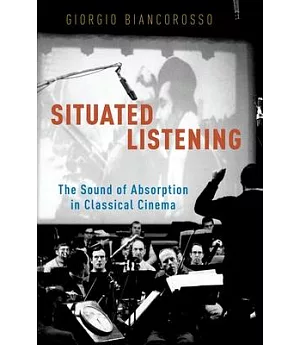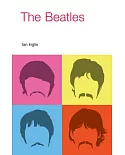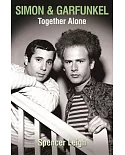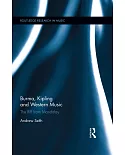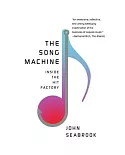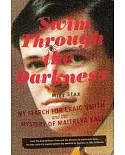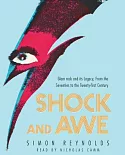Screenwriters and film directors have long been fascinated by the challenges of representing the listening experience on screen. While music has played a central role in film narrative since
the conception of moving pictures, the representation of music listening has remained a mysterious occurrence.
In Situated Listening: The Sound of Absorption in Classical Cinema, author Giorgio Biancorosso argues for a redefinition of the music listener as represented in film. Rather than
construct the listener as a reverential concertgoer, music analyst, or gallery dweller, Biancorosso offers a new way of thinking about listening in film as distributed experience, an activity
made public and shareable across vast cultural spaces rather than an insular motion. As Biancorosso argues, many films have perpetuated a long-existing paradox of music as a means of silencing.
Consider an aggressive score overlaying battle scenes, the comedic use of classical music juxtaposed with narrative chaos, or a romantic theme conveying unspoken intimacy. In the place of
conversational exchange exists an omniscient narrator in the form of music, and Situated Listening explains why this function influences both the course of interpretation and empathy
experienced by film spectators. By focusing on the cinematic, physical, and emotional scenery surrounding a character, viewers can recognize aspects of their own lives, developing a deeper
empathy for each fictional character through real and shared listening practices.Situated Listening proves that cinema functions as not only a reservoir of established modes of
listening, but also an agent in the development of new listening practices.

